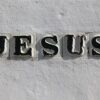Living
Consecrate Us In The Truth, O Lord
7th Sunday of Easter
Acts 1:15-17,20-26
Ps102(103):1-2,11-12,19-20
1 John 4:11-16
John 17:11-19

Pragmatism – being practical and getting on with things that work – has become a fashionable political doctrine. Ideals themselves are excellent, the argument goes, but we actually need policies that work.
The Church too has its pragmatic side, the side that organises people and gets things moving. Sometimes visitors to Rome are shocked by their perception of the scale of the Vatican, the apparent size of the Catholic bureaucracy. Some wish that the Church could simply exist as an idealised, loving community without structures.
Considering that there are over one billion Catholics in the world, the actual size of the Church’s bureaucracy is modest! And Our Lord himself was far too wise to imagine that His mission could be continued on the basis of prayer and good will alone.
His choice of the Apostles, their commissioning, their empowerment with Sacramental Grace, are all part of a divinely given system to enable, sustain and move forward the work of the Christian community.
Our Lord did not, however, leave a detailed instruction manual on how to run the Church or how to monitor the emergence of doctrine. It was left to the Apostles to devise the detailed plan for developing the apostolic ministry and organising the mission of the Church.
During His forty days with them between His Resurrection and His Ascension, Our Lord made no provision for the replacement of Judas, who had betrayed Jesus and committed suicide. In today’s reading from Acts, which is set after the Lord had departed from their sight, the Apostles have to resolve the fact that their number is depleted to eleven.
Jesus chose twelve apostles to reflect the twelve tribes of Israel. Eleven apostles indicated incompleteness; another was needed.
So the leaders of the early Church drew up a system to replace Judas. Inspired by the Book of Psalms, “Let someone else take his office” they set out a person specification, as we might call it today.
The candidates must have been with Jesus during the time between John the Baptist’s appearance and the Ascension; thus they can witness to the ministry and teachings of Jesus and His Resurrection. Two candidates are put forward – Justus and Matthias – and lots are drawn. Matthias wins. There is a mixture of prayerfulness and practicality in this process; the mission of the Church can be resumed.
As the Acts of the Apostles continues to unfold, the Church has to face endless practical questions: where to preach, whom to send to each place, whether to admit Gentiles, which parts of the Jewish Law to observe and which to lay aside.
As the Scriptural period of the Church’s life gives way to the centuries of the Church Fathers new questions arise: whether to baptise infants, whether or not to allow back those who have betrayed the Church under persecution, how to organise dioceses.
The Middle Ages, the Renaissance, the turbulent years of Reformation, the Enlightenment, the modern communications era, the Eastern European communist tyranny, the computer age… Every period has raised countless practical questions, both huge and detailed, which the Church has had to address, from whether Galileo was right to say that the earth revolved around the sun (at first the Church said no, but subsequently yes) to whether it is right to fertilise embryos in test tubes or grow replacement human organs.
A feature of the turning from the second to the third Christian millennium has been the fashion for apologising for past intolerance, mistakes and injustices. The Holy Father has apologised on behalf of the Church for various decisions which were made in good faith at the time but which have since had to be revised. Galileo has been rehabilitated, since it is now clear that the earth does revolve around the sun.
At the time of his condemnation by Pope Urban VIII the Church’s motivation was to safeguard to omnipotence of God. Because the earth was seen as the summit of God’s creation, if it were not the centre of the universe, it was believed that God would be insulted and his very existence be threatened. Science and theology came to different conclusions.
Today, by contrast, many scientists declare their inability to answer the fundamental question of “why?” and “for what purpose?” so that science and theology often appear to walk hand in hand.
What we learn from considering the question of Galileo is how hard it is to achieve the right relationship between different levels of truth. Our Lord prayed in the Gospel today, “Consecrate them in the truth; your word is truth.”
During the Crusades, the quest for truth led to the killing of Muslims by Catholics. Now the Holy Father urges mutual respect between these two religions which share a common forefather in Abraham.
There are some kinds of truth which belong to a particular time, culture, and system of philosophy, the Christian view of which can change. Whether the fashion for apologising is right or wrong, the view on truth connected with Galileo and the Crusades has changed.
However, there are some kinds of truth which do not change, as theologians say, which are not contingent, which do not depend on the culture, time or world-view. It is these eternal truths, fundamental truths, in which Our Lord is praying that the Church should be consecrated.
These are the truths of God’s existence and nature, of Christ’s saving work, of the power of the Holy Spirit, of the mysteries of our salvation, of human dignity and worth. Fundamentally, they are the truths which God reveals to us, rather than conclusions we can reach by the unaided process of human reason.
Thus, in the field of human embryology we are grappling with the fact that the Catholic Church sees God as the author of life, while scientists are now within days of being able to create a designer human being.
Would a human being created by scientists have a soul? Where should society draw the line between assisting nature and controlling it? There is, here, a fundamental question, a question of revealed truth.
“I have sent them into the world, and for their sake I consecrate myself so that they too may be consecrated in truth.” We are the people whom Our Lord wishes to be consecrated in truth.
To do this, we need both to look at the sources of Christian belief – the Scriptures, Tradition, the Church’s teachings and life – and to take part in debates on modern-day questions. Burying our heads in the sand is not an option. We must pray for our theologians and pastors, that they may engage in the debate wisely and in God’s truth, bringing Catholic good sense to a world in danger of straying into serious moral errors.
Equally, we must pray for ourselves, that when we have to face difficult questions of life and death, and moral decisions, that we will be guided by the Truth in which we are consecrated. Sometimes God’s way and the world’s way coincide. Sometimes they do not. When a choice has to be made, may Our Lord guide us in the way of Truth.
Fr Joseph Osho
























